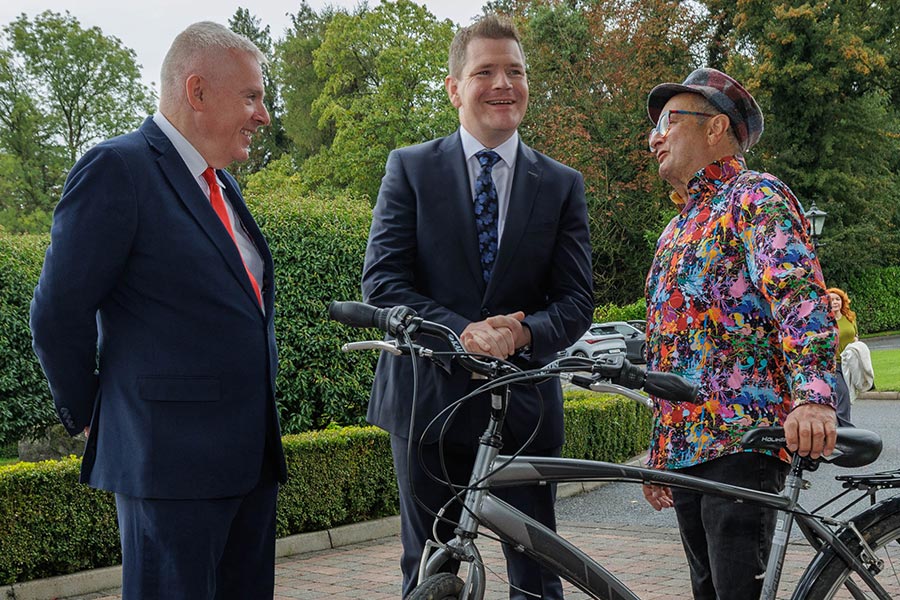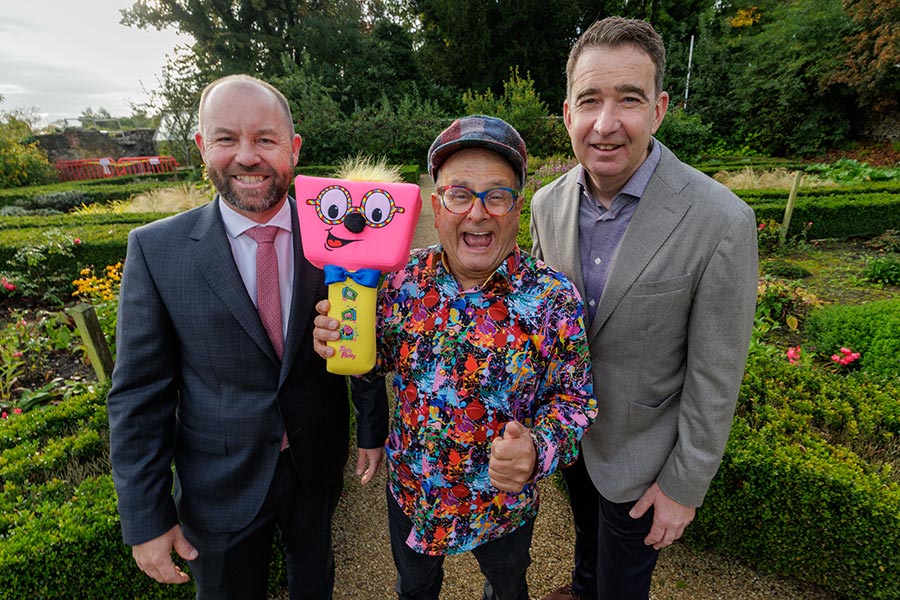Tourism industry leaders gathered in Kilkenny on Wednesday ahead of a crucial Budget for the sector for the annual ITIC conference.
Around 400 business leaders attended the Irish Tourism Industry Confederation event at Lyrath Estate, which was emceed by journalist and broadcaster Dearbhail McDonald, to hear from speakers including Minister for Enterprise, Tourism and Employment Peter Burke.
ITIC last year lobbied for the tourism to be moved to an economics portfolio, and this was Burke's first ITIC conference since responsibility for the sector was moved to the Department of Enterprise.
Previously, tourism had been lumped into the Department of Tourism, Culture, Arts, Gaeltacht, Sport and Media.
In a year when overseas visitor numbers have been down and businesses are concerned about rising input costs and squeezed margins, Burke's comments on VAT and the passenger cap at Dublin Airport at the conference -- titled 'Resilience in an Uncertain World' -- were much anticipated.
He was quick to emphasise that Budget negotiations with the Department of Finance and the Department of Public Expenditure were still ongoing, and that the government wants to invest as much as it can in tourism.
ITIC has asked for an additional €90m in government support for tourism services next year.
Burke confirmed that tourism's final allocation is still to be decided, and that many departments were seeking a share of the €1.5bn allotted for tax measures.
"Hopefully by the end of the week, when Mr Chambers and Mr Donohoe stand up in the Dáil on Tuesday, we have a very strong package," Burke said of the tourism budget.
Burke also spoke about the National Tourism Strategy that he expects to finalise next month and will include plans to develop the SME model for tourism, an expansion of Failté Ireland's remit to cover restaurants, and an all-Ireland food strategy to "showcase the artisan base Ireland has".
Failté Ireland and Tourism Ireland, the state agencies for tourism development and marketing, will be subject to new targets.
"I think we have to have very strong parameters where we want to see where the growth should be," Burke said, adding that "everyone's feet, including myself, [will be] held to the fire to do that."
"I'm going to take a very hands-on role in the tourism sector, and I expect results, and I know that the government is going to give significant support in this Budget.
"But equally, we need to see results based on that. I want to help the sector grasp that opportunity. But also, I want to have it very [clear] that the Department of Enterprise, Tourism and Employment sets the policy.
"We're open to ideas from all sectors and everything, but we need to have a clinical view on good policy underwritten by our state agencies doing the very best, which they do."
Asked about action not being taken on the passenger cap at Dublin Airport sooner, Burke indirectly laid blame with the Green Party.
"I think everyone knows the reason for that. Obviously, we're in a different government now. The last government was a coalition government of three different powers, of three very, very different views. This government is very focused on improving and enhancing Dublin Airport."
Regarding the 9% VAT rate for food-led hospitality businesses, Burke said he "fought a huge battle" trying to get it in the Budget last year and that he is "hopeful that we will win the war on this occasion."
Burke was followed by Mark Little, the former broadcaster and co-founder of Storyful and Kinzen, the latter of which he and Áine Kerr sold to Spotify in 2022.
Little recently left the streaming giant and is developing a new platform for journalists and broadcasters.
Little used to lead Twitter in Ireland, and his speech discussed the volatile political landscape.
He reserved particular criticism for how Silicon Valley bashed artificial intelligence into its model of disruption, developing LLMs at massive cost rather than focusing on its more innovative, smaller scale applications.
Later, AIB chief executive Colin Hunt sat down with McDonald to discuss AIB's return to private ownership and reflect on the financial crisis that led to the bank being bailed out.
"You should always remain ... conscious of the fact that [banking] is an industry which has a destructive capacity like no other. Banking, when you get it wrong, creates a lot of damage in the economy and society, and we know that more than most."
AIB's ability to return the funding it received from the taxpayer was "important validation and vindication" of the bank's strategy and represented a closing of a chapter after more than a decade of "repairing the institution".
"If you look at where AIB found itself at the start of the global financial crisis, and where it is now, they are at diametrical opposites.
"We were poorly capitalised, had very, very poor liquidity going into a major global crisis, and now we are among the best capitalised banks in the world, so we're in a position of huge strength to deliver on our purpose, which is to support customers."
The effects of the crash are still present in the psychology of Irish consumers, who are saving around 14% of their income now compared to 5% during the Celtic Tiger, and now have an aversion to debt, according to Hunt.

He identified infrastructure deficits as the biggest challenge to the Irish economy.
"We need to fix it, and we need to fix it reasonably expeditiously because we have the money, we have the expertise, we just need to persist with the new National Development Plan."
Timmy Mallett spoke about his love of Ireland after cycling around the country, and he became the talk of the conference, but the serious business resumed after lunch with a discussion of the outlook for tourism featuring Tourism Ireland's Siobhan McManamy, Fáilte Ireland's Ruth Andrews and Dalata Hotel Group CEO Dermot Crowley.
The trio were upbeat about the sector's prospects, and McManamy and Andrews did not betray any concern at new targets for their organisations from Minister Burke.
Crowley defended hotels' use of dynamic pricing during major events, appearing fed up that the sector has been singled out for criticism.
Francis Brennan, the hotelier and RTÉ's presenter of At Your Service, later regaled the audience with stories from his long career working, and decried how the personal touch has been lost in an increasingly corporate accommodation sector as squeezed hotels battle Airbnb for customers.
John Healy, founder of Abbey Group subsidiary Moloney & Kelly and a former director of Tourism Ireland, was recognised for his career with a Special Recognition Award.
The ITIC board voted unanimously to award Healy.
Finally, Eoghan O'Mara Walsh, CEO of ITIC, wrapped the conference by asserting that tourism is Ireland's largest indigenous industry as well as its biggest regional employer, generating €12bn for the economy and employing 225,000 people.
Photo: Eoghan O'Mara Walsh, CEO, Irish Tourism Industry Confederation (ITIC); Timmy Mallett, Broadcaster, Artist & Cyclist and Mark Little. Picture Dylan Vaughan.











